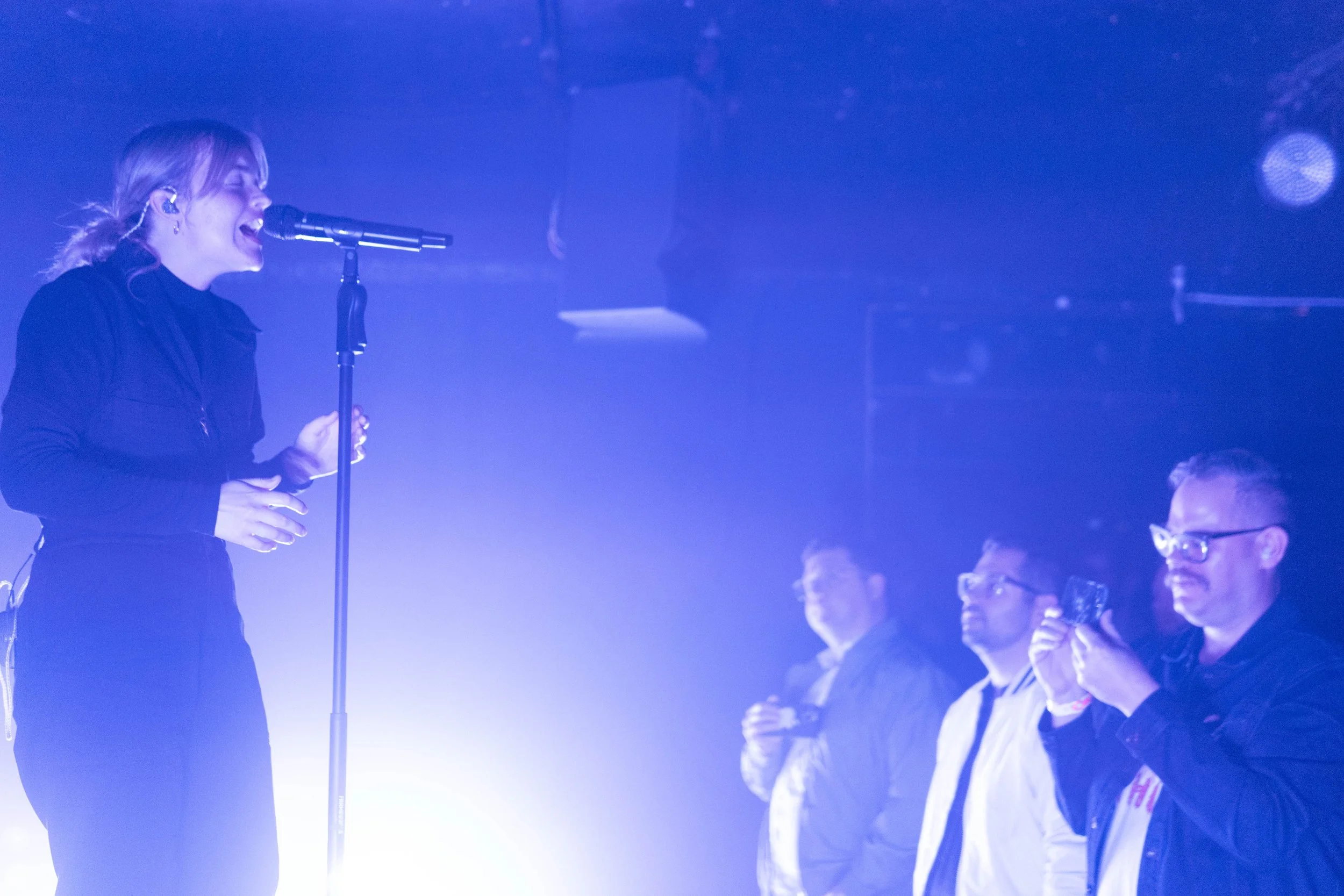#freshfind: Catching up with Dizzy at the end of their North America tour

We had the chance to catch up with Katie from the band "Dizzy" as they got ready for their second to the last show of their North America tour to promote their self-titled album. We discussed how they chose the name, the Junos, finding the suitable mask for the album, and much more.
For the show, we were back at the Blind Pig in Ann Arbor. The night before Thanksgiving, all through the night, we rebelled against dinner prep work and long lines for a more relaxed atmosphere. Fans traveled from across the state to even across the border to catch Dizzy again. We couldn’t wait to see them perform, as it had been a few years since we last saw them supporting the Tokyo Police Club. Homeschool was their support on this tour, and at the end, the guys joined in for a cover of Kill Bill (SZA).
Their set, adorned with candles everywhere, kicked off with the first song off the album Birthmark before following it up with Twist and Roman Candles. As mentioned in the interview, we didn’t get to hear Salmon Season and a few others that some of the fans were hoping to hear. Dizzy has three albums, so it’s harder to condense down the best songs for this tour.
Dizzy lead singer Katie Munshaw describes the self-titled LP as a "patchwork quilt" of different emotions and inspirations that all come together to create a unique amalgamation of her essence. “None of them have all that much to do with each other and yet they wouldn't exist without one another,” she says. The DIZZY LP includes alt-pop hit "Barking Dog," rock-tinged head banger "Open Up Wide," and haunting but heartwarming "Close."






























Katie Munshaw really needed to finish the fucking quilt, and find a way to sew herself into it. The lead singer of Ontario four-piece Dizzy has been thinking a lot about the way things look and the way you can find comfort in disappearing into it all. She describes the album, a bright indie-pop beast continuing the legacy built from two previous shimmering records, as a “patchwork quilt” with each song a square, or a sliver, of her life. “None of them have all that much to do with each other and yet they wouldn't exist without one another,” she says.
It makes for a colourful record that’s intrinsically Dizzy – one that swerves comparison, instead reflecting the shapeshifting and imperfect nature of its musicians. Avoiding the spotlight yet more confidently themselves than ever.




